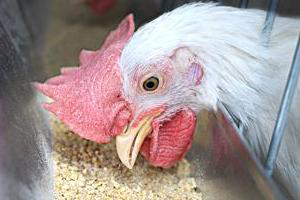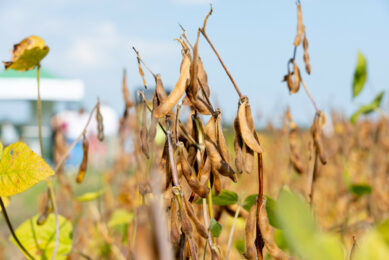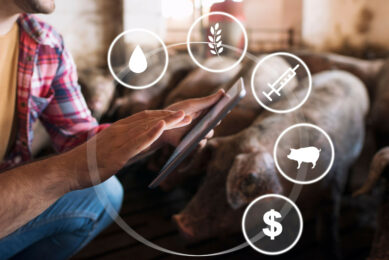Study: “No harm in feeding livestock GMO feed”

According to a study of over 100 billion animals, including nine billion broilers annually, genetically engineered (GE) crops were found to be safe to feed to livestock.
The scientific review from the University of California, Davis, reports that the performance and health of food-producing animals consuming genetically engineered feed, first introduced 18 years ago, has been comparable to that of animals consuming non-GE feed.
The study also found that scientific studies have detected no differences in the nutritional makeup of the meat, milk or other food products derived from animals that ate genetically engineered feed.
Food-producing animals such as cows, pigs, goats, chickens and other poultry species now consume 70-90% of all genetically engineered crops, according to the study. In the United States, alone, 9 billion food-producing animals are produced annually, with 95% of them consuming feed that contains genetically engineered ingredients.
The review, titled “Prevalence and Impacts of Genetically Engineered Feedstuffs on Livestock Populations,” was led by UC Davis animal scientist Alison Van Eenennaam.
“Studies have continually shown that the milk, meat and eggs derived from animals that have consumed GE feed are indistinguishable from the products derived from animals fed a non-GE diet,” Van Eenennaam said. “Therefore, proposed labeling of animal products from livestock and poultry that have eaten GE feed would require supply-chain segregation and traceability, as the products themselves would not differ in any way that could be detected.”
Now that a second generation of genetically engineered crops that have been optimized for livestock feed is on the horizon, there is a pressing need to internationally harmonize the regulatory framework for these products, she said.
“To avoid international trade disruptions, it is critical that the regulatory approval process for genetically engineered products be established in countries importing these feeds at the same time that regulatory approvals are passed in the countries that are major exporters of animal feed,” Van Eenennaam said.
Source: National Chicken Council / Science Daily











